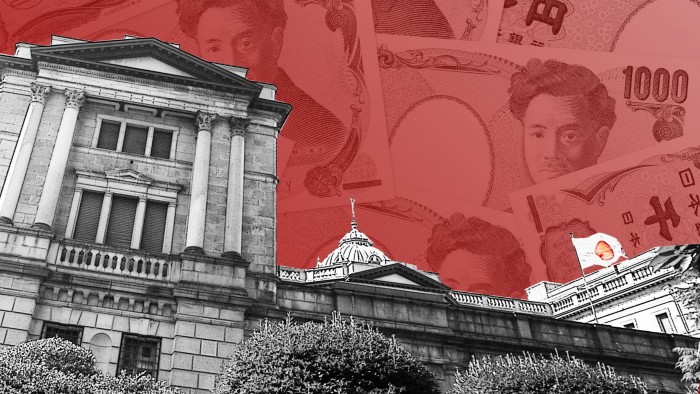[ad_1]
Unlock the Editor’s Digest for free
Roula Khalaf, Editor of the FT, selects her favourite stories in this weekly newsletter.
A closely watched auction of 40-year Japanese government debt has drawn the lowest demand in 10 months as concerns mount over the world’s third-biggest bond market.
Demand for the government’s offer on Wednesday of about $3.5bn of 40-year notes attracted a bid-to-cover ratio — the number of bids received against securities offered — of 2.2, the lowest level since July 2024 and a reflection of what some traders have called a “buyers’ strike” among Japanese life insurers and other domestic participants.
Longer-dated bonds had rallied on Tuesday after reports of the finance ministry surveying prime brokers and investors sparked speculation that the government might reduce its issuance of super-long debt as a measure to calm the market. Yields on the 40-year JGB, which move inversely to prices, fell to a three-week low of 3.29 per cent.
But on Wednesday morning, ahead of the auction, yields moved higher to 3.32 per cent and edged up to 3.37 per cent after the auction result was published. Analysts said demand, while low, was in line with expectations.
“The headlines will say lowest since last July, but in the context of a broad shock in yields, the result wasn’t too shocking — soft, but in line with where you would expect given the unknowns around what the Ministry of Finance might do,” said Stephen Spratt, rates strategist at Société Générale.
The outcome of Wednesday’s auction for the 40-year JGBs, which are held every two months, had been under unusually intense speculation since last week, when extremely weak demand at an auction of 20-year bonds caused their yields to rise to a multi-decade high of 2.6 per cent.
Yields on 30-year bonds reached a peak of 3.185 per cent, and yields on the 40-year notes hit 3.675 per cent.
The sell-off, along with Prime Minister Shigeru Ishiba’s recent comparison of Japan’s situation to that of Greece, has added fuel to a long-standing debate around long-term fiscal stability. Japan’s debt-to-GDP ratio has stood above 200 per cent since the start of the Covid-19 pandemic.
Analysts at Barclays said last week’s 20-year JGB auction had served to confirm a structurally fragile supply and demand balance in the super-long JGB market because of the lack of domestic private-sector demand.
Recommended
Ahead of Wednesday’s 40-year auction, finance minister Katsunobu Kato told reporters he was closely monitoring the bond market, while Bank of Japan governor Kazuo Ueda said the central bank was keeping an eye on volatility in super-long yields for any knock-on effect at the shorter end of the curve.
Last week’s surge in super-long JGBs came as part of a broad global sell-off of advanced economies’ long-dated bonds, as investors focus on the risks of higher government spending in countries with already significant debt burdens.
But Japan’s bond market has raised a number of specific concerns as the country slowly emerges from its long experiment with ultra-loose monetary policy. Last June, the BoJ said it would begin trimming its JGB purchases at a pace of ¥400bn ($2.75bn) a quarter between August 2024 and March 2026, raising focus on the strength of private-sector demand.
[ad_2]
Source link


